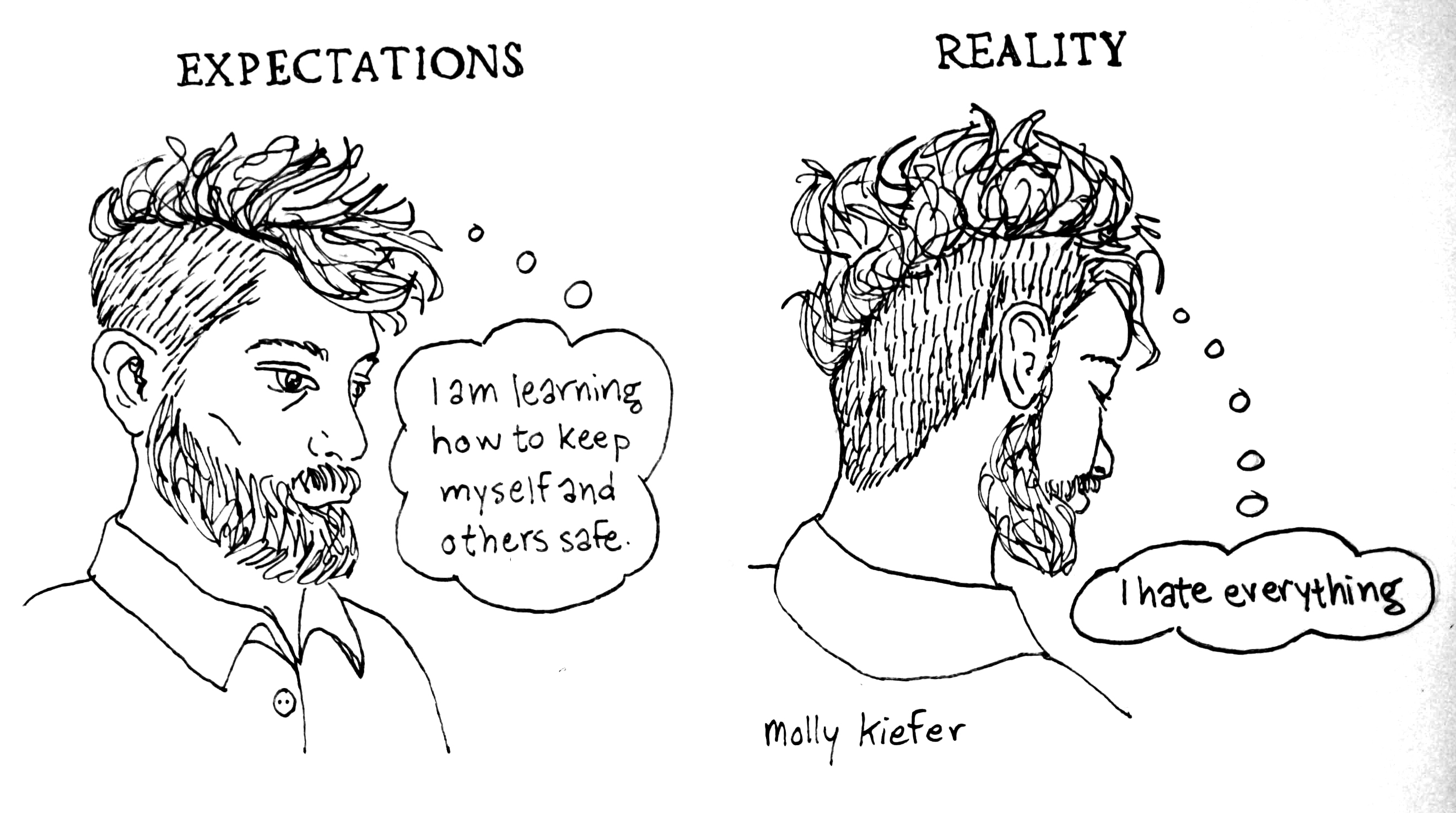
Seminar course for first-years problematic at best
By ALTHEA BILLINGS
THE PIONEER Success Institute (PSI) is a six week long seminar course required for all first year students to complete in order to register for the spring semester. PSI is intended to educate students on a variety of topics, including wellness, identity and sexual conduct. It also introduces students to the many resources found on campus.
The stated goals of PSI, preparing first year students for all that college entails, are noble. The unstated goal of raising retention rates isn’t so bad either. Studies have shown that first year retention rates increase if students make a connection with a staff member within the first six weeks, something not so secretly aimed at by this seminar course. Additionally, it’s important to introduce students to the college’s resources and expectations, but does it have to be so goddamn boring?
It would be hard to argue that it’s bad for Lewis & Clark to have a support system in place for its transitioning students — so we won’t argue that. Instead, it is the finer points of PSI that are problematic. From the very start of school, student are required to endure an hour and a half class each week for six weeks, which is mostly comprised of dead time or busy work. This is an issue because it teaches students to be unfocused in class. It also increases cynicism over academia and makes it more likely that students won’t take the important issues brought up by PSI seriously.
PSI is widely considered to be complete and utter drudgery, and many are inclined to skip or leave early. The inclination to skip is instilled way to early, and is deeply counter-productive. It doesn’t help that skipping leads to Friday make-up sessions that are more abbreviated than the normal ones.
PSI presents important material that just doesn’t fit into New Student Orientation (NSO), although it might work better there. Students need to learn about Title IX and where to go when they need help, be it personal or academic. But all of this, as it is presented now, is much too dry to be absorbed.
One markedly positive change from PSI’s 2014 rookie year to the current incarnation is the addition of student coordinators. These paid students are certainly a step in the right direction as far as bridging the gap between jaded students and eager staff coordinators.
PSI is still in its infancy. There’s still time to change this for future incoming classes. The information presented is important, but it needs to be condensed, and set at a mature cognitive level that doesn’t talk down to students. Sure we need help settling in, but at the same time, part of adaptation is being treated as an adult who is capable of whatever college has to offer. Time at LC is precious, and PSI should be teaching students to value that in and out of the classroom, not wasting it each week.
It’s hard to want to respond to surveys from a program that is so terribly insipid, but the future of PSI and the fate of the incoming class of 2020 depends on solid student feedback that gives the administration the truth. That’s how this year’s program changed from the year previous. PSI is boring and tedious, albeit important. This can be changed. There is still hope.
Subscribe to the Mossy Log Newsletter
Stay up to date with the goings-on at Lewis & Clark! Get the top stories or your favorite section delivered to your inbox whenever we release a new issue.

Leave a Reply